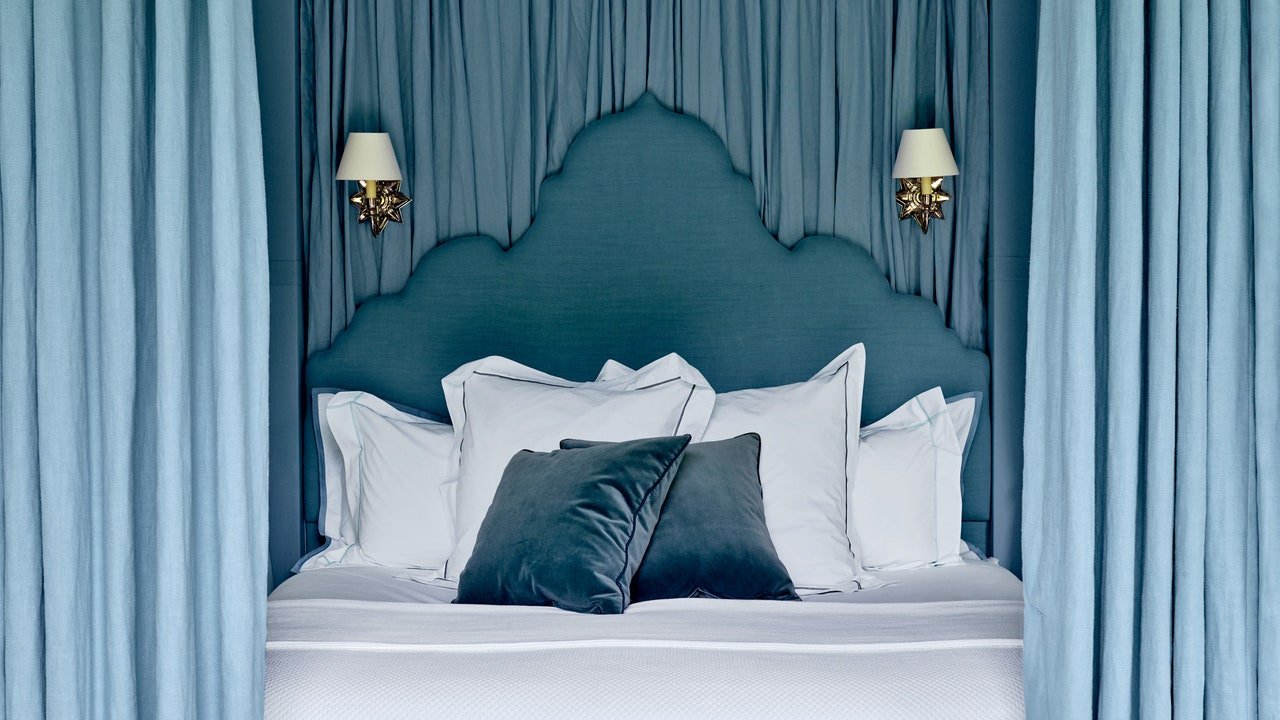New Dad and mom: Right here Are 8 Tips to Optimize Your Bed room for Sleep
Any new parent can attest to the value of a great night’s sleep. As a mother of two girls who were babies not too long ago, this author knows firsthand that sleep deprivation is part of the job description, and that getting quality shut-eye isn’t easy. In recognition of this widespread dilemma, the mattress and bedding brand Tuft & Needle recently launched an apt sleep ambassador program for 15 parents that teaches them how to reclaim their rest.
You may not be able to control exactly when you get to sleep with young children at home, but you can create a bedroom environment that helps you optimize your winks when you can get them in. We tapped two design experts who are parents themselves—Jessica Shaw, the director of interior design at the Turett Collaborative, and Eliza Harris, the creative director at design brand Sister Parish Design—for advice on how to transform your bedroom into a sleep haven. Their top tips follow.
Invest in proper bedding for the season and your climate
Comfortable sleep starts with good bedding, Shaw says. For colder regions or winter months, it’s worth buying bedding with insulating properties, especially if your home or bedroom is not well insulated. Also aim for heavier bedding such as down comforters and duvets, or you can consider getting flannel sheets. In warmer regions and in summer months, look for sheets with less insulation like linen or bamboo. Their breathability is much better than sateen or percale, and they keep you cooler.
Secure double-width blackout curtains
Blocking out all light when it’s time to sleep is essential, Harris says, and blackout curtains do the trick. “I don’t think I could manage without mine,” she says. “Not only will you keep external light at bay, but there’s also a ritual about drawing the curtains that puts your body in sleep mode.” You can find these drapes at a home furnishing store such as West Elm, or buy a high-end fabric from a brand like Sister Parish and have them custom-made to match your aesthetic.
Incorporate feng shui
The principles of feng shui revolve around consciously arranging furniture and home elements to bring harmony and alignment with the natural world. Placing your bed in accordance with feng shui can help with a good night’s sleep, according to Shaw. Your bed should always allow for a view of the door, and the headboard or back of the bed should rest against a solid wall. Also, allocate space on both sides of the bed to establish balance. “We want the bedroom to be void of too much stimulation and distraction, so having a sense of harmony with visual elements can be beneficial to winding down,” Shaw says.
Add essential oils to your bedtime routine
Essential oils have been proven to aid in sleep and relaxation. “Eucalyptus and lavender are my favorites due to their calming properties,” Shaw says. You can incorporate aromatherapy into your bedtime routine by using a diffuser or pillow spray.
Surround yourself with meaningful mementos
Beloved family photos, a small piece of art that you picked up on that memorable European vacation, and your favorite books all are things that instantly make you happy. Keeping them visible in your bedroom gets you in a positive state of mind come bedtime. Harris says that she has photos of her husband and son and an artwork by her grandmother, Apple Parish Bartlett, in her bedroom. “Looking at them makes me feel good and gives me sweet dreams,” she says.
Get smart about lighting and electronics
There is no doubt that smartphones and technology are an integral part of our lives, but it is important to power down these electronics before bed because blue light from tablet screens can disrupt the production of melatonin in our bodies.
In addition to reducing tablet use at night, invest in smart lighting for good slumber. Many smart lightbulbs on the market have the option to dim in accordance with the sunset to help your sleep cycle align with natural circadian rhythms. Plus, Shaw suggests using a traditional analog alarm clock to keep the phone (and light) out of the bedroom. And a tip straight from a pro: If your baby monitor has a video component on it, switch it to dark mode and rely on the sound only.
Install dimmable bedside sconces
A sconce does double duty for you when it’s by your bed. You’ll have more room on your nightstand for books and other nighttime go-to’s, and you can also dim the light to create a soft glow when it’s time to wind down. The lower light signals your brain to relax and makes you sleepier.
Make your bed every morning
For weary new parents, making your bed in the morning is hardly a priority. However, this simple task subconsciously tells our brains that it’s time to start the day. Additionally, having a made bed helps keep your room decluttered and prevents the temptation to climb back in. “It will make it all the sweeter at the end of the day, as nothing is better than pulling back the sheets and getting into a nicely made bed,” Shaw says.


